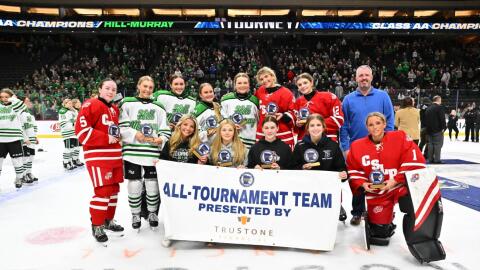This piece is republished with permission from the Public News Service.
January is National Mentoring Month and in Minnesota, program leaders report waiting lists for kids to be matched up with an adult willing to spend some valuable time with them.
Calls are being renewed for volunteers. Community-based mentoring programs connect youths who do not have many role models in their lives with adults for a range of activities. It could include attending sporting events, museums, or doing arts and crafts together.
Jill Hinners, executive director of Mentor North in Duluth, said it is all about helping children develop new skills and confidence.
"We definitely see kids that are introverts, shy, anxious," Hinners explained. "Where maybe they just have a little bit of difficulty putting themselves out there to form a large network of friends."
She suggested a mentor might put them more at ease in making connections as they grow. Her group pointed to research showing mentored kids are 22% more likely to have felt a strong sense of belonging. Hinners noted even though Minnesota has a good track record for volunteer work, her office reports a waitlist of between 50 and 60 kids.
Other data show kids who have a mentor are 55% more likely to enroll in college and are 78% more likely to volunteer regularly. Hinners stressed the outcomes can be traced back to a sense of belonging.
"We want youths to feel that they are developing their voice," Hinners emphasized. "To be able to make themselves heard in their community and courageous enough to take leadership positions in their community."
Hinners pointed out even though they have a backlog, volunteer levels have rebounded from a pandemic dip. She added they are trying to be more accommodating in certain ways, including making sure kids with disabilities have a good experience.
Adults who want to become mentors are put through a screening process before they are matched with a youth who has similar interests.
-
Lead for Inclusion in Bemidji will host a book club event for "When Stars Are Scattered" at 4:30 p.m. March 4, 2026, at the Northwest Minnesota Foundation.
-
Warroad, Proctor-Hermantown and Bemidji represented the rural Northland in the girls hockey state tourney. Bemidji was the consolation runners-up.
-
-
The KAXE Music Team highlights new music from Remember Sports, Ancient Cat Society, Altın Gün, Kevin Morby, David Huckfelt & Laura Hugo, Mirah, and Cary Morin.










